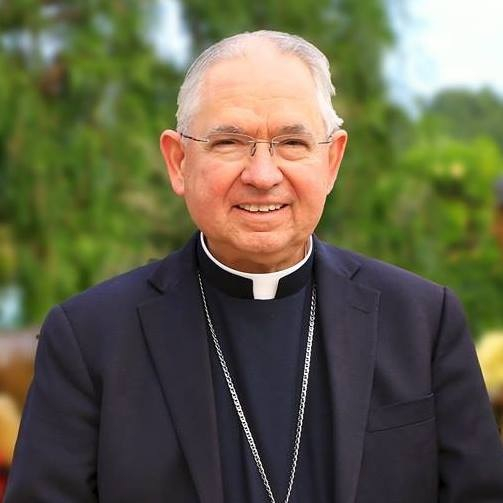
United States Conference of Catholic Bishops President Archbishop Jose Gomez said "wokeness" and new "social justice movements" along with identity politics and more are but "pseudo-religions" meant to rival Christian beliefs.
WND reported that Gomez called wokeness and social justice, among others, as "pseudo-religions" during the Congress of Catholics and Public Life that was held in Madrid, Spain last Thursday, November 4. Gomez delivered a speech virtually and spoke about "America's new political religions" that included wokeness, identity politics, and intersectionality.
On the other hand, The Washington Examiner said that Gomez "admonished" America's growing interest in "intersectionality and identity politics" and allegedly raised the need for politicians "over a certain age" to "take a cognitive test." Gomez revealed that these new social justices and ideologies "come to fill the space that Christian belief and practice once occupied."
In the transcript of the speech, Gomez explained that he was asked to address "the rise of new secular ideologies and new movements for social change" that are prevalent in the United States and that have "implications for the Church." He highlighted that this is a "serious, sensitive, and complicated topic" that is also happening in other countries in Europe though in a varying way and degree.
Gomez pointed out that these changes have been happening over the years and was only "accelerated" by the pandemic based on "our societies' responses" to it, which is most "certainly true in the United States."
"The new social movements and ideologies that we are talking about today, were being seeded and prepared for many years in our universities and cultural institutions. But with the tension and fear caused by the pandemic and social isolation, and with the killing of an unarmed black man by a white policeman and the protests that followed in our cities, these movements were fully unleashed in our society," Gomez disclosed.
"This context is important in understanding our situation in the United States. The name George Floyd is now known worldwide. But that is because for many people in my country, myself included, his tragedy became a stark reminder that racial and economic inequality are still deeply embedded in our society," he highlighted.
As per Gomez, these seeds were planted by an elite group who have little interest in religion nor any attachment to local cultures and traditions. This group is in charge of governments, corporations, and in various professional establishments like the media who aim to establish a civilization that runs on a "consumer economy" guided not by God but by "science, technology, humanitarian values, and technocratic ideas."
Gomez underscored that "America's new political religions," no matter how it is called, falsely offer "what religion provides," explaining what is happening in the world, and a "sense of belonging." He stressed that it is a religion like Christianity for it offers them a story of "salvation," which has strength in the "simplicity" of its delivery of "victims" and "adversaries," making it a very "attractive" narrative especially to those who "feel discriminated against."
"I believe the best way for the Church to understand the new social justice movements is to understand them as pseudo-religions, and even replacements and rivals to traditional Christian beliefs. With the breakdown of the Judeo-Christian worldview and the rise of secularism, political belief systems based on social justice or personal identity have come to fill the space that Christian belief and practice once occupied," Gomez said.
Gomez contradicted the position these ideologies pose that the soul is purely spiritual and "irrelevant to human happiness" thereby reducing humanity to mere "physical qualities" such as skin color, sex, or ethnicity. He said these are but "atheistic," which in turn leaves people far from the truth on their humanity.
"In denying God, these new movements have lost the truth about the human person. This explains their extremism, and their harsh, uncompromising, and unforgiving approach to politics. And from the standpoint of the Gospel, because these movements deny the human person, no matter how well-intentioned they are, they cannot promote authentic human flourishing," Gomez underscored.
"In fact, as we are witnessing in my country, these strictly secular movements are causing new forms of social division, discrimination, intolerance, and injustice," he added.
Despite what is happening, Gomez pointed out that all is not lost and that the remedy is "simple": proclaiming Jesus Christ "boldly," "creatively," full of "confidence," and "without fear." He stressed that these pseudo-religions shouldn't intimidate Christians because the Gospel remains to be more powerful than them.
He also said that being a "voice for individual conscience and tolerance" along with promoting greater humility and "realism about the human condition" are key supporting actions in the work of evangelization.

















